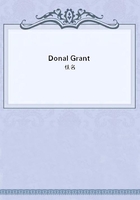
第8章
Donal was queer, some of my readers will think, and I admit it; for the man who regards the affairs of life from any other point than his own greedy self, must be queer indeed in the eyes of all who are slaves to their imagined necessities and undisputed desires.
It was evening when he drew nigh the place whither he had directed his steps--a little country town, not far from a famous seat of learning: there he would make inquiry before going further. The minister of his parish knew the minister of Auchars, and had given him a letter of introduction. The country around had not a few dwellings of distinction, and at one or another of these might be children in want of a tutor.
The sun was setting over the hills behind him as he entered the little town. At first it looked but a village, for on the outskirts, through which the king's highway led, were chiefly thatched cottages, with here and there a slated house of one story and an attic; but presently began to appear houses of larger size--few of them, however, of more than two stories. Most of them looked as if they had a long and not very happy history. All at once he found himself in a street, partly of quaint gables with corbel steps; they called them here corbie-steps, in allusion, perhaps, to the raven sent out by Noah, for which lazy bird the children regarded these as places to rest. There were two or three curious gateways in it with some attempt at decoration, and one house with the pepperpot turrets which Scotish architecture has borrowed from the French chateau. The heart of the town was a yet narrower, close-built street, with several short closes and wynds opening out of it--all of which had ancient looking houses. There were shops not a few, but their windows were those of dwellings, as the upper parts of their buildings mostly were. In those shops was as good a supply of the necessities of life as in a great town, and cheaper. You could not get a coat so well cut, nor a pair of shoes to fit you so tight without hurting, but you could get first-rate work. The streets were unevenly paved with round, water-worn stones: Donal was not sorry that he had not to walk far upon them.
The setting sun sent his shadow before him as he entered the place.
He kept the middle of the street, looking on this side and that for the hostelry whither he had despatched his chest before leaving home. A gloomy building, apparently uninhabited, drew his attention, and sent a strange thrill through him as his eyes fell upon it. It was of three low stories, the windows defended by iron stanchions, the door studded with great knobs of iron. A little way beyond he caught sight of the sign he was in search of. It swung in front of an old-fashioned, dingy building, with much of the old-world look that pervaded the town. The last red rays of the sun were upon it, lighting up a sorely faded coat of arms. The supporters, two red horses on their hind legs, were all of it he could make out. The crest above suggested a skate, but could hardly have been intended for one. A greedy-eyed man stood in the doorway, his hands in his trouser-pockets. He looked with contemptuous scrutiny at the bare-footed lad approaching him. He had black hair and black eyes; his nose looked as if a heavy finger had settled upon its point, and pressed it downwards: its nostrils swelled wide beyond their base; underneath was a big mouth with a good set of teeth, and a strong upturning chin--an ambitious and greedy face.
But ambition is a form of greed.
"A fine day, landlord!" said Donal.
"Ay," answered the man, without changing the posture of one taking his ease against his own door-post, or removing his hands from his pockets, but looking Donal up and down with conscious superiority, then resting his eyes on the bare feet and upturned trousers.